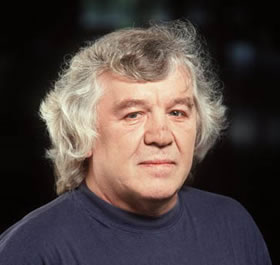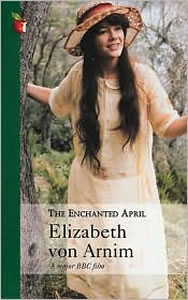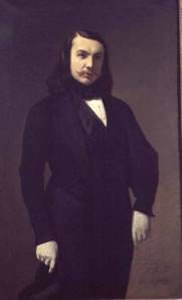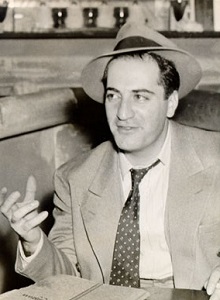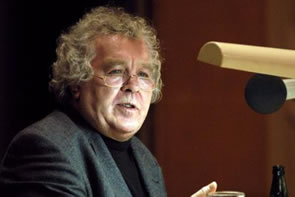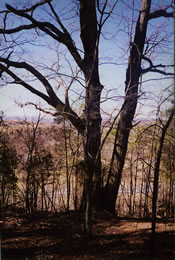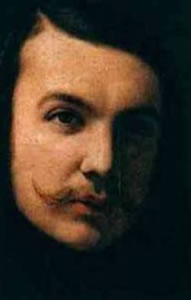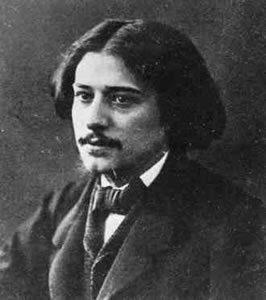Dolce far niente

Sommer-Abschied
(Der September)
Noch liegen Feld und Wiesen
unter heißer Sonnenlast,
doch seht, dort holt der Sommer
seine Fahne schon vom Mast.
Noch träumen rote Früchte
hoch im Laub vom Liebestraum,
doch hört, da fallen Äpfel
laut ins Gras vom Apfel-Baum.
Scheu huschen Rosendüfte
durch die späte Sommerzeit,
doch schmeckt, hier reifen Früchte
mit süßer, schwerer Üppigkeit.
Der Sommer strebt zum Ende,
herbst-zarter Duft zieht durch das Land,
am Himmel treiben Wolken,
Abendrot im Festgewand.
Und all die Spinnen weben
so manchen feinen Schleier,
der Herbst gibt jetzt dem Sommer
die letzte Abschiedsfeier.

Bremen, de geboorteplaats van Wolfgang Seekamp
De Amerikaanse dichter en schrijver William Saroyan werdgeboren op 31 augustus 1908 in Fresno, Californië. Zie ook alle tags voor William Saroyan op dit blog.
Uit: Fresno Stories (FIRE)
“One of the few things all of the Bashmanians are agreed about is fire, which we love, as we do all things in the fire family: the sun, all reds and yellows, California poppies and sunflowers. No wonder the Armenians fought off the Persians when they came with swords to demand that we join them in fire worship. Why should we spoil a good thing by making it official? We had official Jesus, and that was wonder enough. When a building was on fire in Fresno and the Fire Department came roaring up in its red fire engines, we would already be there, laughing, and rejoicing in the light, heat, color, and music of the fire eating wood to ash. The greatest fire I ever witnessed was a comparatively insignificant one. The thing that made it great was that it was my house. I had gone with my family in 1919 to Armona—about forty miles southwest of Fresno and three miles from Hanford—where there was good work in the fresh-fruit packing houses, and we shared a house bought for his family by my uncle Gunyaz Bashmanian after he suffered losses in three consecutive business enterprises. A small grocery store on 0 Street in Fresno went bankrupt because of the lower prices at the big store that suddenly opened next door. Then an orchard of peach and apricot trees in Biola brought forth two crops so meager that the place had to be given back to the bank. And finally this unlucky man bought a jewelry store on Mariposa Street in Fresno, next to D. Yezdan’s Clothing Store. One night it was emptied of everything by robbers, who were never apprehended. “Robbers?” Gunyaz said when he heard of the theft. “Not police?” Gunyaz put all of his remaining money into the buying of the old house in Armona, so that he and his wife and his two sons could work in the packing houses and perhaps save money again, but his wife took ill, one of his sons broke his arm, and Gunyaz himself sprained his back so badly that even with a brace holding him together he could do no more than stand and walk. When he was almost entirely out of money, with a lot of doctor’s bills to pay, Gunyaz took all of his business papers to a lawyer named Jivelikian and asked him to study them carefully. The following day the lawyer said, “I have found all of your papers in order. You paid two thousand dollars cash for the house and its furnishings. I know the house well, as the previous owner asked me to help him sell it three years ago. At best, the furnishings, the house, and the lot on which it stands are all together worth one thousand dollars. However, the fire insurance policy on the house is for six thousand dollars, and has a week to go.” Gunyaz said, “The house is old and rotten. I’m afraid it might catch fire some night when all of us are asleep.” “That is something to avoid at all costs,” the lawyer said. “I can’t stand guard every night,” Gunyaz said. “I have a bad back and many debts.” “My fee is one dollar,” the lawyer said. Gunyaz paid Jivelikian a silver dollar and went home. As luck would have it, everybody was either at the packing house or at the doctor’s, and Gunyaz Bashmanian was home all alone, his head full of sorrow, anger, and fire. That night, when everybody was home from work or from the doctor’s, he said to his wife, “Prepare a feast. We shall enjoy our good health and good fortune in this world, under the fig tree in the back yard.” The feast began a little after ten, by which time I was more sleepy than hungry. Nevertheless, I kept myself awake enough to have a little of everything, and then I began to long for my bed, which I shared with my brother Bakrot Bashmanian, called Buck for short. But Gunyaz said, “No, you must eat now. You are eleven years old; it is not time to go into the house.” He himself went into the house by way of the back door and came out by way of the front door.”

Sayorans huis in Fresno
De Nederlandse schrijver Sander Kok (ook bekend fotomodel) werd geboren in Arnhem op 31 augustus 1981. Zie ook alle tags voor Sander Kok op dit blog.
Uit: Smeltende vrouw
“Soms kreeg hij de aandrang een groot gebaar te maken, desnoods fysiek, een gebaar waarvan iedereen zou schrikken. Maar in de lusteloosheid van de klas reflecteerde zijn eigen lusteloosheid, hun dode ogen waren zijn dode ogen, en uiteindelijk stond hij hier voor het geld en niet voor hen, zoals hij niet naliet hun, en zichzelf, te vertellen. Zijn leven was thuis, bij Neeltje. Op school was hij bij Hades. Zijn leven had ergens een vreemde bocht gemaakt, een bocht omlaag. Dagelijks keerde hij uit de onderwereld terug en dagelijks kon hij bij thuiskomst Neeltje zien opbloeien. De plastic klok tegenover hem stond bijna op kwart voor vier, maar hij liep voor en het duurde nog een tijd voor hij naar huis mocht. Hij stond met zijn rug naar het schoolbord en leunde met zijn vuist op het bureau, de andere hand hing slap naast zijn lichaam, de palm en nagels wit van het krijt. Achter hem stond op het bord de Nederlandse spelling van ‘Tolstoj’, die hij eerder met lange halen op het groen had neergekalkt. Hij keek naar de klas, die als een monolithisch blok voor hem zat Niemand keek terug. In de hoek pakte een meisje een make-updoosje uit haar rugzak en peuterde het met haar nagel open. Ze keek afwisselend in haar spiegeltje en in het gezicht van Reukens, zoals automobilisten afwisselend op hun telefoon kijken en dan naar de weg. Het is niet dat ze ongeïnteresseerd zijn, dacht hij, ze zijn gewoon afwezig. Wie heeft een vraag over Tolstoj?’ Hij keek de klas rond en zag een vinger. Willemijn heeft een vraag over Tolstoj.’ Willemijn de Vries was zestien jaar, zeer aantrekkelijk en sprak zeven talen, waaronder Oudperzisch, een taal die ze haar eerste liefde noemde. Haar lievelingsauteur was Heinrich Heine, omdat die ‘zo mooi zong’, en `niet alleen door Schumann’ — hij moest nog opzoeken wat ze daarmee bedoelde. Hij had aan haar eenzelfde soort hekel als aan oude vrouwen die een te zwaar parfum dragen. `Is bekend wat Tolstoj vond van Dostojevski’s stijl, of misschien het gebrek eraan, in Misdaad en straf?’ `Is bekend wat Tolstoj vond — Ja… In elk geval niet dat ik weet. Maar ik denk dat hij Dostojevski waardeerde om zijn psychologisch inzicht en hem toch, zoals Nabokov en Karel van het Reve een eeuw later, een matige schrijver vond — schrijftechnisch tenminste.’ `Maar is er niks bekend over wat Tolstoj vond van Misdaad en straf in het bijzonder?’ `Dat is niet bij mij bekend.’ Hij vroeg zich af waarom ze dit wilde weten, waarom dit soort mensen zich niet uit zelfhaat verhing, bijvoorbeeld op het schoolplein beneden. Hij keek naar de honderdjarige eik naast de ingang. Die was dik genoeg, die zou houden. In de klas waarin hij zelf scholier was geweest, zou Willemijn zijn uitgelachen en beschimpt om dat soort vragen, maar niet hier, niet op de Mirandola School voor Hoogbegaafden. Hier was alles anders. De pubers waren even weerspannig als elders op de wereld, maar ze droegen het op een andere — ingetogenere, beschaafdere — manier uit. Mirandola was een van die scholen voor kinderen die volgens de ouders, de directeur en het zittende kabinet meer moesten worden uitgedaagd. Kinderen die beter zijn, dacht Reukens erbij. Hij haatte ze met een hartstocht die aan liefde grensde. De managementlui vonden het zijn taak om voor die uitdaging te zorgen. Ze hadden gedaan of hij, uitgerekend hij, noodzakelijk was voor hun ontwikkeling. Ha! Hij was erin getuind, hij had de baan aangenomen, voor een schandelijk laag salaris. En nu stond hij hier Nietzsche en Dostojevski te verklaren voor een klas die zich nog minder voor filosofie en literatuur interesseerde dan een gewone klas. De rijen waren star en onbeweeglijk. Rijen bomen in een aangeplant bos. Geen wind woei, geen takje bewoog. Bij tijd en wijle voelde hij zich nuttelozer dan hij zich vroeger had gevoeld, op de gewone middelbare school, waar hij nog eens vijftien jaar van zijn volwassen leven had doorgebracht.”

Zie voor nog meer schrijvers van de 31e augustus ook mijn blog van 31 augustus 2018 en ook mijn blog van 31 augustus 2017.











